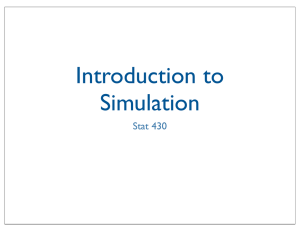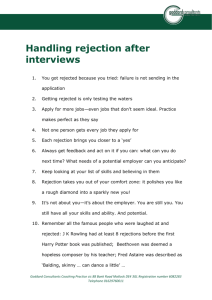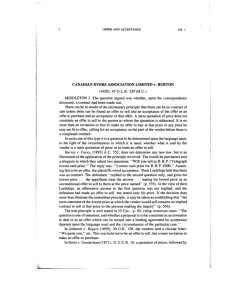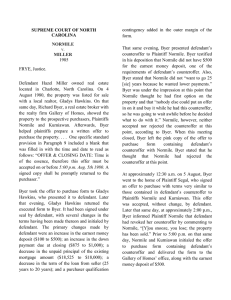Acceptance – Case Briefs
advertisement
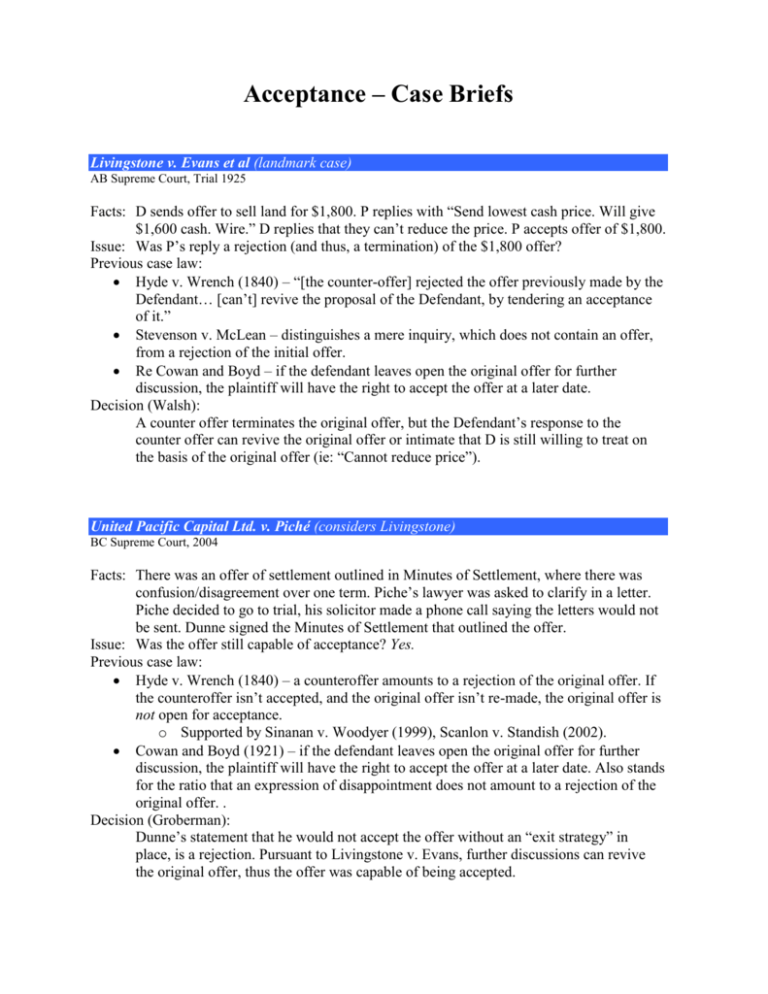
Acceptance – Case Briefs Livingstone v. Evans et al (landmark case) AB Supreme Court, Trial 1925 Facts: D sends offer to sell land for $1,800. P replies with “Send lowest cash price. Will give $1,600 cash. Wire.” D replies that they can’t reduce the price. P accepts offer of $1,800. Issue: Was P’s reply a rejection (and thus, a termination) of the $1,800 offer? Previous case law: Hyde v. Wrench (1840) – “[the counter-offer] rejected the offer previously made by the Defendant… [can’t] revive the proposal of the Defendant, by tendering an acceptance of it.” Stevenson v. McLean – distinguishes a mere inquiry, which does not contain an offer, from a rejection of the initial offer. Re Cowan and Boyd – if the defendant leaves open the original offer for further discussion, the plaintiff will have the right to accept the offer at a later date. Decision (Walsh): A counter offer terminates the original offer, but the Defendant’s response to the counter offer can revive the original offer or intimate that D is still willing to treat on the basis of the original offer (ie: “Cannot reduce price”). United Pacific Capital Ltd. v. Piché (considers Livingstone) BC Supreme Court, 2004 Facts: There was an offer of settlement outlined in Minutes of Settlement, where there was confusion/disagreement over one term. Piche’s lawyer was asked to clarify in a letter. Piche decided to go to trial, his solicitor made a phone call saying the letters would not be sent. Dunne signed the Minutes of Settlement that outlined the offer. Issue: Was the offer still capable of acceptance? Yes. Previous case law: Hyde v. Wrench (1840) – a counteroffer amounts to a rejection of the original offer. If the counteroffer isn’t accepted, and the original offer isn’t re-made, the original offer is not open for acceptance. o Supported by Sinanan v. Woodyer (1999), Scanlon v. Standish (2002). Cowan and Boyd (1921) – if the defendant leaves open the original offer for further discussion, the plaintiff will have the right to accept the offer at a later date. Also stands for the ratio that an expression of disappointment does not amount to a rejection of the original offer. . Decision (Groberman): Dunne’s statement that he would not accept the offer without an “exit strategy” in place, is a rejection. Pursuant to Livingstone v. Evans, further discussions can revive the original offer, thus the offer was capable of being accepted.
